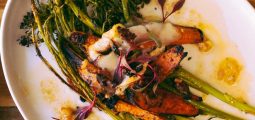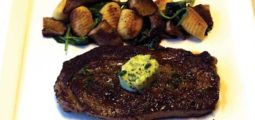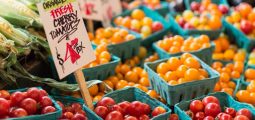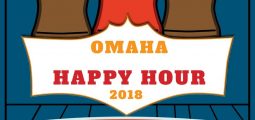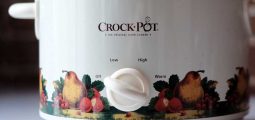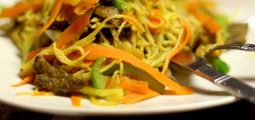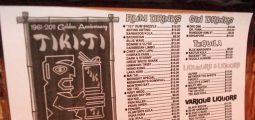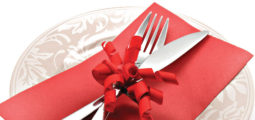Food Guilt: Eat it now, apologize never
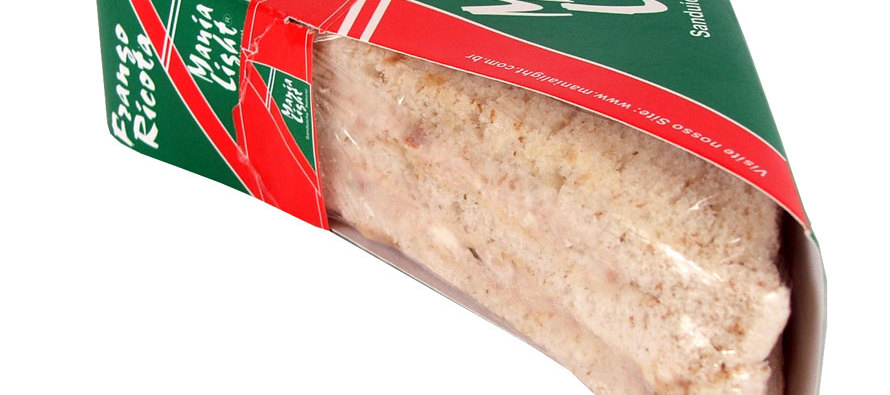
Recently, I had a casual potluck dinner with some friends. It’s a regular group, and we know each other pretty well. As we were setting out the dishes, I noticed there was a lot of apologizing. “Sorry, this isn’t organic.” “I didn’t have time to cook, so I just stopped at Whole Foods.” “I know this is totally junk food, but the kids wanted it.”
It shouldn’t surprise anyone. Americans are riddled with anxiety. We think people are always watching us and judging us. Our friends, our partners, our co-workers, our families, even complete strangers. This phenomenon extends to food in a big way. Pay attention to your thought process when ordering a meal at a restaurant. Oh, sure, you’ll start off thinking about what sounds good, but you’ll end up wondering what your dining partner will think of your choice before your drink comes.
Food culture and media is full of ever-shifting advice. Don’t eat so much fat. Don’t eat so much salt. Alcohol might increase your chances of heart disease. No, wait. Red wine is good for your heart. Drink it anyway. Go vegetarian. Do the Paleolithic Diet. Eat full-fat like the French. And then there’s Jesse, the eco-warrior on “The Simpsons”: “I’m a level five vegan. I won’t eat anything that casts a shadow.”
In his cult classic book, The One-Straw Revolution, Japanese farmer Masanobu Fukuoka calls these “diets of principle.” They are decisions we make based on philosophy or social pressures. They have nothing to do with food, nutrition or the human’s place in nature. Fukuoka contends that the more discriminating we become, the further from the truth we become. If you consider all the confusion we experience with our food choices, you might think that he is right.
Our modern food system is astonishing. If we all went back to farming and ate what we produced locally, you’d never have another drop of coffee or tea. No hummus with sesame tahini. No sushi in this landlocked state unless you were desperate enough to eat something raw from the Missouri river. At least we could drown our sorrows in beer since barley and hops will grow nicely in Nebraska. These days, due to our ability to ship and store produce and process the hell out of it, we can generally get any food we want, any time we want. I’d like to see more people grow food, but I’d argue that the pendulum has swung too far in the last 100 or so years.
Interestingly, this timeline coordinates with a lot of food fanaticism and extreme health claims. John Kellogg, creator of those little corn flakes, advocated for vegetarianism and yogurt enemas to heal various diseases. Sylvester Graham, the cracker man, also advocated a vegetarian diet, mainly to “cure” sexual urges and alcoholism. Kellogg, Graham and other health advocates of their day were highly religious and members of the temperance movement. They had a lot of influence over how we approach food and health.
Of course, they weren’t the first to cause worry over diet. All ancient cultures had food laws and rules over who could eat certain things. Kosher and halal laws have survived many generations. There’s nothing new in feeling like people are watching you. They are. The guy at the grocery store checkout comments on everything you buy. Your waitress thinks you should really consider a salad instead of the Alfredo. And your entire family can’t believe how many desserts you ate at Thanksgiving when you were little. It’s natural for us to observe and comment on what other people are doing. We’re only human.
So, friends, the next time we eat together, don’t worry about apologizing to me. I will love you just the same, even if I do wonder what the hell you were thinking when you bought that junk.
No comments
Write a commentOnly registered users can comment.
